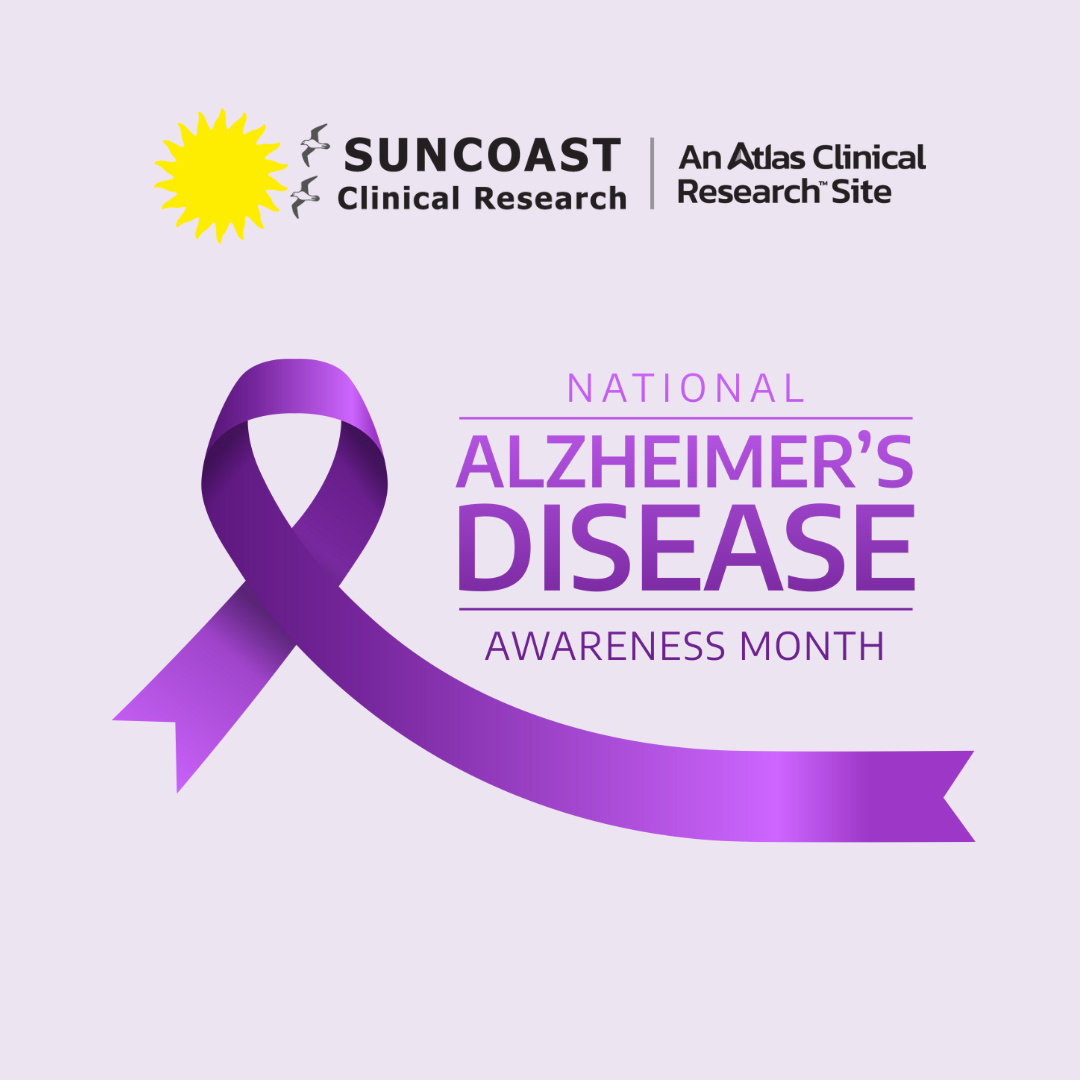A growing body of research suggests that lifestyle changes can meaningfully reduce the risk of Alzheimer’s disease—even in people with a genetic predisposition. In a recent ABC News interview, neurologist Dr. Leah Croll discussed how daily habits like physical activity, diet, and sleep hygiene may play a powerful role in delaying or slowing cognitive decline.
At Suncoast Clinical Research, we’ve long believed in the value of early intervention and holistic care. Our clinical trials are designed not only to study promising new treatments for Alzheimer’s but also to explore how those treatments interact with real-life factors—like movement, nutrition, and overall brain health.
Your Genes Don’t Tell the Whole Story
While genetics like the APOE4 gene can increase your risk for Alzheimer’s, having the gene does not mean you will develop the disease. According to Dr. Croll, lifestyle and health history play a major role in shaping brain health over time.
- Medical conditions such as:
- High blood pressure
- Diabetes
- High cholesterol
- Obesity
- Hearing and vision loss
…are all linked to a higher risk of dementia. The good news? These are factors we can do something about.
“Even things like genetics and other risk factors are not guaranteed,” Dr. Croll said. “Your behavior can still modify those types of risks.”
5 Lifestyle Habits Our Alzheimer’s Experts Recommend for Brain Health
At Suncoast Clinical Research, our Alzheimer’s specialists routinely emphasize how small, consistent changes can help support long-term cognitive function—especially when made before symptoms escalate. Here are five everyday habits we encourage in conjunction with clinical research:
1. Take Control of Chronic Conditions
Managing high blood pressure, cholesterol, diabetes, and weight can ease strain on the brain and reduce inflammation. We recommend working closely with your doctor to stay on top of these conditions.
2. Move More
Regular exercise promotes blood flow to the brain and may help maintain memory and learning functions. Walking, swimming, and resistance training are great places to start.
3. Choose Nutrient-Rich Foods
Dietary patterns such as the Mediterranean or MIND diet—rich in fruits, vegetables, lean proteins, and healthy fats—are linked to better brain health outcomes.
4. Stay Socially Engaged
Conversations, group activities, and community involvement stimulate the brain and may reduce cognitive decline.
5. Prioritize Sleep and Manage Stress
Quality sleep clears toxins from the brain and supports memory consolidation, while stress can negatively affect mood and focus. Mindfulness, meditation, and relaxation techniques are all worth exploring.
“These strategies are powerful tools that anyone can begin integrating into their daily lives,” says our Alzheimer’s principal investigator Dr. Cathy Barnes. “They may not replace treatment, but they can certainly enhance it—and even delay the onset of symptoms.”
Turning Insight into Action: How Suncoast Clinical Research Is Leading the Way
While lifestyle habits play a crucial role in brain health, they’re only one piece of the puzzle. That’s where clinical research comes in—and it’s where Suncoast is making a difference every day.
Our site has been conducting Alzheimer’s and dementia clinical trials since 1998, but we’re especially proud of our leadership in the XanaMIA global Phase 2b/3 Alzheimer’s study. In fact, our own Dr. Cathy Barnes, Principal Investigator, was recently recognized as the #1 enrolling physician in the United States for this pivotal trial, according to the June 2025 Actinogen Medical’s Global Newsletter.
“Being ranked #1 in the U.S. for Alzheimer’s study enrollment isn’t just a number—it’s a reflection of our community’s dedication to advancing research and our team’s commitment to every participant who walks through our doors,” says Dr. Barnes.
Her leadership places Suncoast Clinical Research at the forefront of U.S. clinical efforts to evaluate promising treatments and improve outcomes for individuals living with memory loss.
Is It Too Late to Protect Your Brain?
Absolutely not.
Whether you’re concerned about memory loss, have a family history of Alzheimer’s, or simply want to take proactive steps, it’s never too late to get involved. According to the National Institute on Aging, participating in clinical trials is one of the best ways to contribute to scientific progress—and potentially benefit from early access to innovative care.
At Suncoast Clinical Research, we believe in treating the whole person—not just the diagnosis. Whether through clinical trials, education, or everyday health strategies, we’re proud to stand at the forefront of Alzheimer’s research. Join us in shaping a healthier future for our community.
Are you or someone you love facing memory concerns or worried about Alzheimer’s? Call us today at 727-855-7103 or complete the interest form to see if you qualify for an Alzheimer’s clinical trial and be part of advancing the future of brain health.




